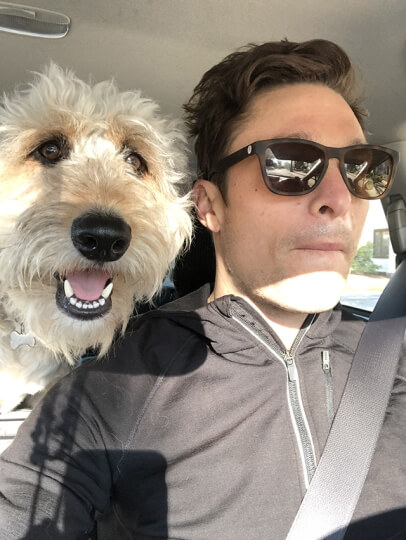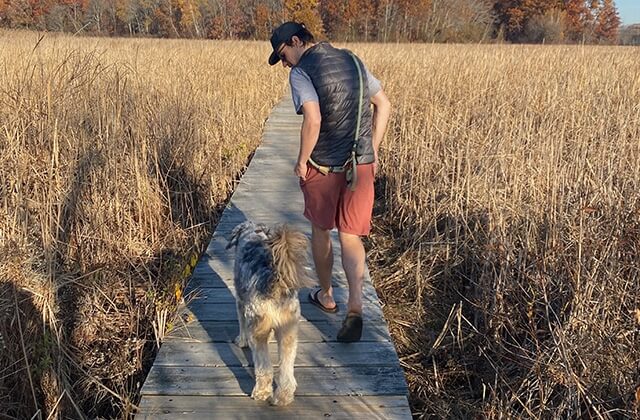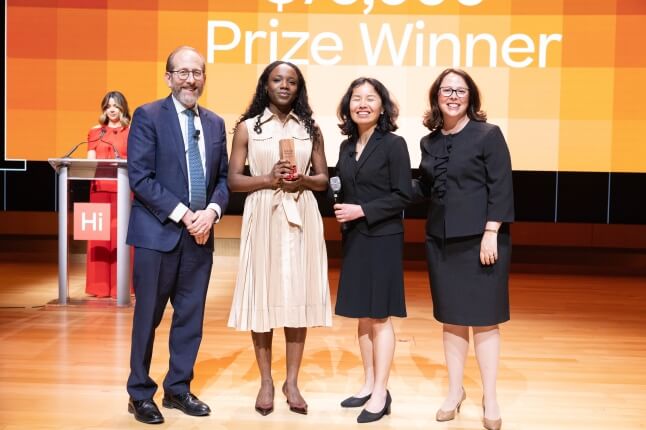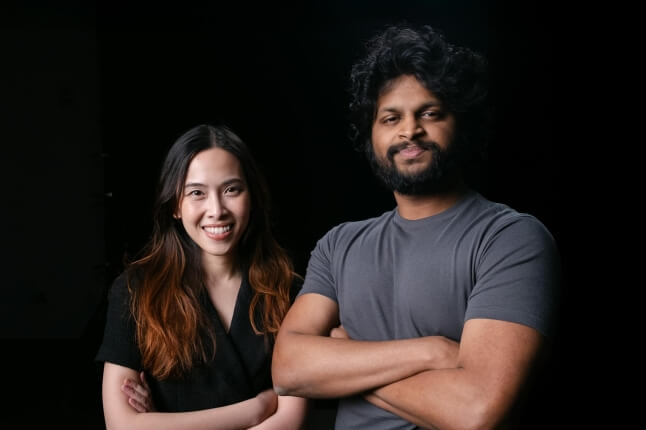News
Rufio, an Australian shepherd/poodle mix, was joyously bounding around his backyard one day last spring when he ran over something sharp, resulting in a serious cut on his paw.
The accident occurred during the height of the COVID-19 pandemic when most veterinary offices were closed or not seeing new patients, so Rufio’s owner, Trevor Cobb, was unable to schedule an appointment. Cobb’s partner, a physician, bandaged Rufio’s paw and they decided to wait it out.
When they noticed a week later that Rufio’s paw wasn’t healing as fast as it should, they tried to send photos and messages to vets for advice, to no avail.
“We ended up with a really expensive medical bill because we had to go to urgent care, and he had to go under anesthesia to get his paw cut open and resewn shut,” said Cobb, who was then working as a product manager for a telehealth company. “So that journey for my pet Rufio opened my eyes to a problem, but also an opportunity.”
Cobb, now a student in the master’s in design engineering program, offered jointly by the Harvard John A. Paulson School of Engineering and Applied Sciences and Graduate School of Design, launched prisaVet, a telehealth technology platform that connects general veterinary practitioners with specialists to streamline communication and enable virtual consultations.
Typically, when a vet determines the pet needs care from a specialist, they make a referral, requiring another appointment to be set up, dragging out diagnosis and treatment and putting the health of the pet at risk.
Using Cobb’s platform, a general practitioner could instead record a video message, upload all the relevant lab work and patient history, and send it to a specialist who reviews the case and submits a response.
“PrisaVet compresses the cycle of care to save time and money,” Cobb explained. “It is a platform to help both general practitioners and specialists scale, all with increased flexibility.
He began working on the startup as his independent design project for the MDE program. As part of the project, Cobb met with dozens of general veterinarians, specialists, and pet owners to understand their needs and explore potential opportunities.
One of the biggest challenges he has faced is determining how prisaVet can move from an academic project to a real-world product.
Cobb, who is working out of the Harvard Innovation Labs, has been utilizing the input of advisors to unravel that puzzle. He’s also relied on the tools he developed in the Harvard Kennedy School course “Entrepreneurial Finance” (MLD-840), which helped him design financial models to determine if prisaVet can be economically viable.
He is pilot-testing a prototype with veterinary practitioners.
“I want to ensure prisaVet augments the specialist’s job and isn’t something that is going to disrupt the way that they work,” he said. “From day one, I have leveraged participatory design techniques to build a product hand-in-hand with my core stakeholders, so I can ensure what I'm building aligns with their needs and remains focused on improved patient outcomes."
If the pilot testing succeeds, Cobb hopes to roll prisaVet out to a wider audience soon.
An animal-lover, he finds it especially rewarding to be able to help pets get better access to specialty medicine and, ultimately, better outcomes from veterinary care.
Topics: Entrepreneurship
Cutting-edge science delivered direct to your inbox.
Join the Harvard SEAS mailing list.
Press Contact
Adam Zewe | 617-496-5878 | azewe@seas.harvard.edu




